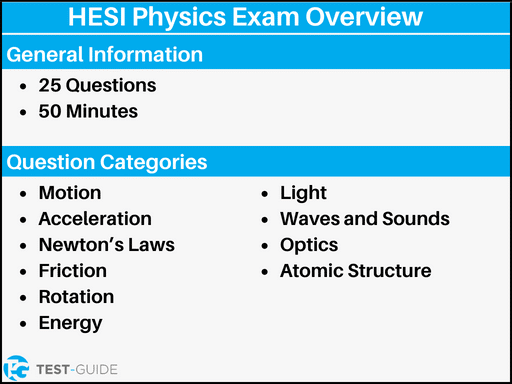HESI Physics Diagnostic Practice Test
Use our HESI A2 physics practice test to study for your exam.
Want to study for the other sections of the exam? Visit our free HESI A2 practice test home.
HESI A2 Physics Overview
The HESI physics test consists of:
- 25 Questions
- 50 Minutes
The 25 questions will review topics like:
- Motion
- Acceleration
- Newton’s Laws
- Friction
- Rotation
- Energy
- Light
- Waves and Sounds
- Optics
- Atomic Structure

If you are at peace with the physics section, you can begin studying for other sections with our HESI practice questions.
Frequently Asked Questions
How many questions are on the physics exam for the HESI?
There will be 25 total questions on the physics section of the HESI.
How long is the HESI physics section?
You will have 50 total minutes to complete this section. You will need to spend less than 2 minutes per question to keep pace on this section.
Is there a set passing score for HESI physics?
No, there is not a universal passing score. Each program will determine their own passing scores. You should shoot for a 75% or higher as this is typically the minimum passing score.

